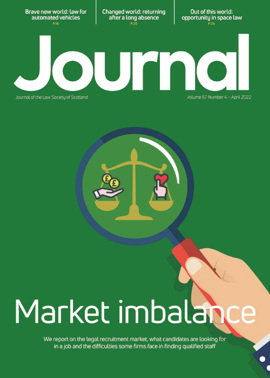Tax: What did the Spring Statement bring?
The Chancellor’s Spring Fiscal Statement on 23 March once again has been influenced significantly by unforeseen factors. His first Budget had to deal with the uncertainty of COVID-19. Now, with the effects of COVID-19 still being felt across the UK, Rishi Sunak has also had to grapple with the effects of the war in Ukraine and the cost of living crisis in his Spring Statement.
With households bracing to be hit very hard by increasing energy costs, the Chancellor has introduced various measures to support families during this trying time, which many have criticised as not going far enough. He also expanded research and development relief, and hinted at business tax plans focusing on incentivising capital investment, both of which will be welcomed by UK businesses.
National insurance and income tax
Along with an increase in the maximum employment allowance, the Chancellor announced an increase in the national insurance contributions (“NICs”) threshold for employees and the self-employed from £9,500 to £12,570, bringing it into line with the income tax personal allowance. This will be introduced in July 2022 and it is expected that almost 30 million people will have more disposable income as a result, and around 70% of taxpayers will pay less in NICs, even after accounting for the new health and social care levy which comes into effect on 6 April 2022. However, the benefit is not as great for higher earners and, despite the increase in the NICs threshold, it is expected that those earning over around £40,000 will end up with an increased NICs liability as a result of the health and social care levy.
The Chancellor also announced that the basic rate of income tax will be cut from 20% to 19% from April 2024. This change applies in England, Wales and Northern Ireland, and to savings income in Scotland.
VAT and energy saving materials
This measure introduces a time-limited zero rate of VAT for the installation of certain energy saving materials (“ESMs”) in homes. The zero rate will be available for the installation of ESMs for a period of five years, after which the 5% reduced rate will apply. This can be seen as a small part of the increasing approach towards green investment by the Government.
Research and development
In his Spring Statement, the Chancellor confirmed that expenditure on overseas research and development (“R&D”) activities will still qualify for tax relief in certain circumstances, representing a U-turn on previous plans to completely block tax relief for offshore R&D. There will be an exemption introduced from April 2023 for overseas R&D where there are “material factors such as geography, environment, population or other conditions that are not present in the UK”, and those conditions are required for the R&D activity to be undertaken. The Chancellor also confirmed that all cloud computing associated with R&D, including storage, will qualify for relief from April 2023.
This will be a particularly welcome U-turn for the UK life sciences sector, where R&D work done outside the UK can be essential, for example gaining licensing approval for new drugs or clinical trials.
Business tax
Following the difficulties posed by the pandemic, incentivising business investment is a priority for the Government, according to the Government’s new tax plan published alongside the Spring Statement. The current capital allowances “super deduction” of up to 130% is available to companies investing in new plant and machinery between 1 April 2021 and 31 March 2023. The Chancellor has acknowledged that something must be done in respect of the tax treatment of capital investment, where the UK is currently “less generous” than the OECD average. However, we will have to wait until the Autumn Budget to see how the Chancellor will incentivise business investment when the “super deduction” ends in 2023.
Fuel duty
Given the increasingly expensive cost of living, the Chancellor’s decision to cut fuel duty payable by 5p per litre will be a welcome cut for UK households. This measure is expected to impact up to an estimated 36 million individuals by reducing their motoring costs, subject to how much they drive. The saving could also be significant for businesses that rely heavily on transportation in the running of their organisation.
Perspectives
Features
Briefings
- Criminal court: Thom bar still applies
- Licensing: tighter rules for the pet trade
- Insolvency: Transition from the COVID measures
- Tax: What did the Spring Statement bring?
- Immigration: Providing a home for Ukrainians
- Scottish Solicitors' Discipline Tribunal
- Property: RCI – what does it involve?
- In-house: Looking for a star







